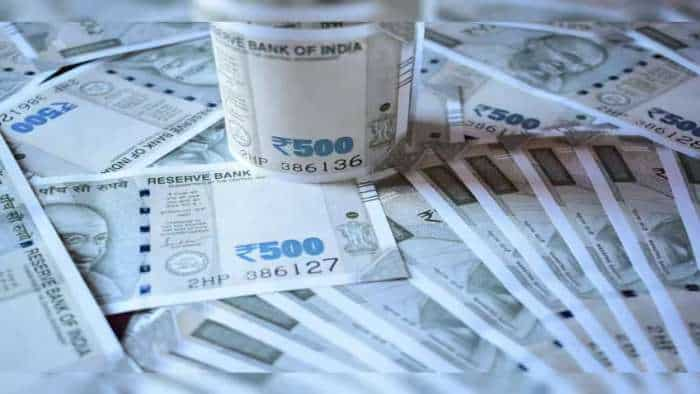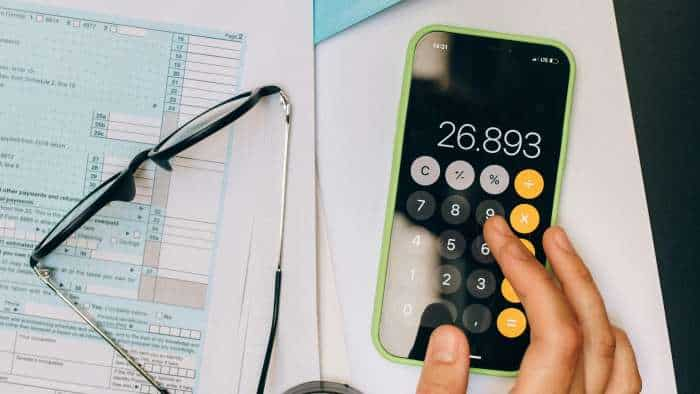Finance Ministry nod for relief to telcos unlikely
The Finance Ministry is unlikely to give consent to any cut in the licence fee and the spectrum usage charges (SUC) for relief to telcos to meet adjusted gross revenue (AGR) dues, due to its own revenue position and economic slowdown.

The Finance Ministry is unlikely to give consent to any cut in the licence fee and the spectrum usage charges (SUC) for relief to telcos to meet adjusted gross revenue (AGR) dues, due to its own revenue position and economic slowdown.
In the February budget estimates for 2020-21, the revenue projection from these two heads (licence fee and the SUC) has been more than doubled to Rs 1.33 lakh crore from the current estimates of Rs 58,989 crore, ruling out any scope for relief. The projection didn't include AGR dues or spectrum auction proceeds.
According to FinMin officials, telcos were granted the two-year moratorium relief last year on the spectrum dues payment on a past spectrum auction, keeping in mind their stressed finances. A Cabinet Secretary-headed panel had approved the moratorium for 2020-21 and 2021-22.
If the Prime Minister's Office (PMO) decides on such a cut, it will be a different thing. But at the consultation level, the FinMin will state its precarious revenue position.
The FY20 fiscal deficit has been expanded, pegging it at 3.5 per cent for FY21 with poor tax and non-tax revenue positions due to slowdown and low growth.
Economic Affairs Secretary Atanu Chakraborty said the budget estimates from the Telecom Ministry revenues were from licence fees and the SUC and didn't include the AGR dues.
Chakraborty's remark made it clear that any relief is unlikely for telcos, which have sought 10-12 years to pay these AGR dues.
The Supreme Court's AGR order came in October 2019.
"Receipts under 'other communication services' mainly relate to the licence fees from telcos and on account of the SUC. The DoT collects recurring licence fees from telecom service providers licenced by it," the government said in the Receipt Budget for 2020-21.
Telecom operators pay 3-5 per cent and 8 per cent of the AGR as the SUC and licence fees, respectively. They also pay 5 per cent Universal Service Obligation Fund charges.
As the government wouldn't be able to extend any relief directly on the AGR dues, since it's a Supreme Court mandated process, but it also doesn't want any telco to shut shop under the AGR payment stress, there are talks of reduction in the licence fee and the SUC to help them.
A cut in these two charges has been the industry's long-standing demand and the Telecom Regulatory Authority of India has also backed it. Even last week Airtel chief Sunil Mittal after his meeting with Telecom Minister R.S. Prasad said he had raised the issue of high taxation and levies in the sector.
Get Latest Business News, Stock Market Updates and Videos; Check your tax outgo through Income Tax Calculator and save money through our Personal Finance coverage. Check Business Breaking News Live on Zee Business Twitter and Facebook. Subscribe on YouTube.
RECOMMENDED STORIES

SBI Guaranteed Return Scheme: Know how much maturity amount you will get on Rs 2 lakh, 3 lakh, and Rs 4 lakh investments under Amrit Vrishti FD scheme

SIP vs Sukanya Samriddhi: Rs 1.2 lakh per year investment for 15 years; which can creates larger corpus?

Rs 5,000 SIP for 40 years vs Rs 50,000 SIP for 20 years: Which can create higher corpus? See calculations to know it

Small SIP, Big Impact: Rs 2,500 monthly SIP for 30 years or Rs 25,000 for 12 years, which do you think works better?

18x15x12 SIP Formula: In how many years, Rs 15,000 monthly investment can grow to Rs 1,14,00,000 corpus; know calculations

PPF For Regular Income: How you can get Rs 78,000 a month tax-free income through Public Provident Fund investment?
10:24 AM IST











 Government nod to Vodafone Idea to convert Rs 16,133 crore spectrum, AGR interest dues into equity
Government nod to Vodafone Idea to convert Rs 16,133 crore spectrum, AGR interest dues into equity  Vodafone Idea defers Rs 8,837 cr AGR dues payment, gets option to pay interest via equity
Vodafone Idea defers Rs 8,837 cr AGR dues payment, gets option to pay interest via equity Government cannot exempt PSUs from paying their share of AGR dues, rules TDSAT; says public, private sector cannot be treated differently
Government cannot exempt PSUs from paying their share of AGR dues, rules TDSAT; says public, private sector cannot be treated differently Why Vodafone Idea shares are falling? Stock tanks 15%, inches close to 52-week low- Here is why?
Why Vodafone Idea shares are falling? Stock tanks 15%, inches close to 52-week low- Here is why? Mobile tariffs need to be raised, stresses Vodafone Idea MD, CEO Ravinder Takkar; calls staggered payment of AGR dues good outcome
Mobile tariffs need to be raised, stresses Vodafone Idea MD, CEO Ravinder Takkar; calls staggered payment of AGR dues good outcome